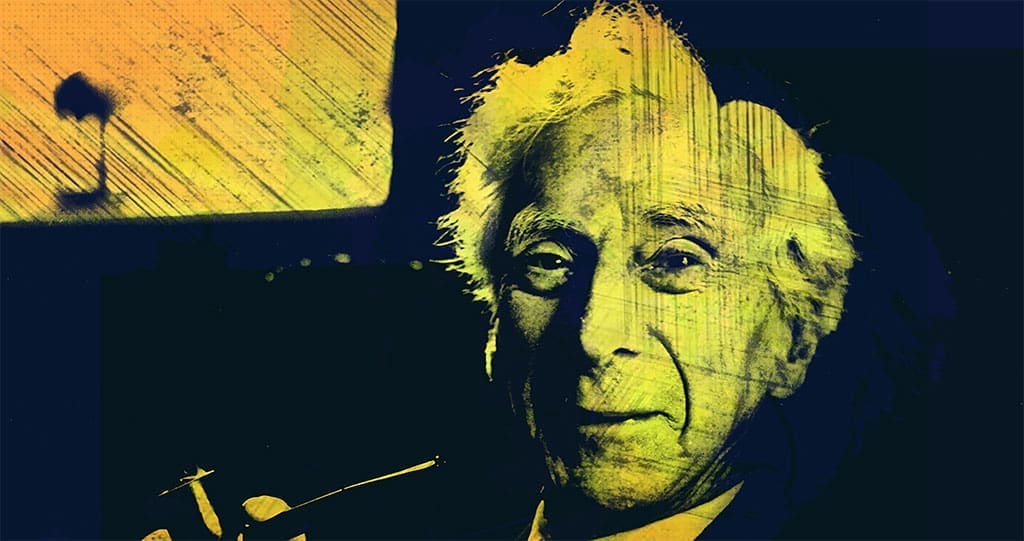Exploring the Essence of a Good Person
The concept of a “good person” has been a topic of contemplation for philosophers, theologians, and everyday people for centuries. What makes someone good? Is it their actions, intentions, beliefs, or a combination of all these elements? The quest for goodness is not just about moral correctness; it is about understanding the essence of what it means to be a good person and how this is expressed in the complexities of human life. In exploring this, we investigate the philosophical foundations, psychological motivations, social influences, and the inherent human struggle to embody goodness.

All of our content is free to access. An independent magazine nonetheless requires investment, so if you take value from this article or any others, please consider sharing, subscribing to our mailing list or donating if you can. Your support is always gratefully received and will never be forgotten. To buy us a metaphorical coffee or two, please click this link.
Table of Contents
The Definition of a “Good Person”
To begin with, the definition of a “good person” varies across different cultures, religions, and philosophies. In Western philosophy, for instance, Aristotle’s virtue ethics emphasizes the importance of character and the development of virtues such as courage, temperance, and wisdom. For Aristotle, a good person is someone who acts in accordance with these virtues and achieves a balanced character through the practice of moderation, or the “Golden Mean.”
In contrast, Immanuel Kant’s deontological ethics argues that goodness is determined by adherence to a set of moral rules or duties, irrespective of the consequences. A good person, according to Kant, is one who acts out of a sense of duty and according to the categorical imperative, which is a principle that one should act only according to that maxim by which you can, at the same time, will that it should become a universal law.

Eastern Philosophy
Meanwhile, in Eastern philosophy, the notion of a good person often intertwines with spirituality and the harmonious balance between the individual and the universe. Confucianism, for example, emphasizes the importance of “Ren” (仁), often translated as “benevolence” or “humaneness,” which suggests that a good person is one who is inherently kind and considerate toward others, acting in ways that promote societal harmony. Similarly, in Buddhism, a good person is someone who cultivates “right action,” “right speech,” and “right livelihood,” which are aspects of the Noble Eightfold Path aimed at reducing suffering and promoting compassion and enlightenment.
Despite these differences, there is a common thread that runs through these diverse perspectives: the emphasis on the intentions behind actions and the cultivation of a certain character or state of being. A good person is not defined merely by isolated good actions but by a consistent pattern of behaviour and intention that reflects a commitment to ethical principles. This perspective aligns with modern psychological understandings of moral development.
Psychologist Lawrence Kohlberg, for instance, proposed that moral reasoning develops through a series of stages, from a pre-conventional level where actions are guided by self-interest to a post-conventional level where individuals recognize universal ethical principles. At this highest stage, a good person is someone who acts according to self-chosen ethical principles that are comprehensive, universal, and consistent.

The Quest for Goodness
Moreover, the quest for goodness is not just an individual endeavour but is deeply embedded in social contexts. Our understanding of what it means to be good is often influenced by social norms, cultural narratives, and communal expectations. Social psychologist Albert Bandura’s social learning theory posits that people learn behaviours, values, and attitudes by observing others, especially those in positions of authority or those who are seen as role models. This suggests that the qualities of a good person are, in part, socially constructed and reinforced through processes of socialization and modelling.
However, the influence of social norms on our understanding of goodness can be a double-edged sword. While societal expectations can encourage pro-social behaviour and a sense of responsibility towards others, they can also perpetuate biased or restrictive notions of what constitutes goodness. For example, cultural norms might dictate gender-specific roles and behaviours, where being a “good woman” is associated with traits like nurturing and self-sacrifice, while being a “good man” is linked to strength and assertiveness. Such stereotypes not only limit the understanding of goodness to a narrow set of characteristics but also enforce conformity at the expense of individuality and authenticity.

Theories of Personality
The psychological dimensions of goodness also play a crucial role in shaping how individuals perceive and practice goodness. Theories of personality suggest that certain traits, such as empathy, conscientiousness, and agreeableness, are strongly associated with prosocial behaviour. Empathy, the ability to understand and share the feelings of others, is particularly significant because it fosters a sense of connectedness and motivates altruistic actions. People who are high in empathy are more likely to engage in behaviours that benefit others, even when there is no direct personal gain involved. This resonates with the ethical principle of altruism, which is the selfless concern for the well-being of others.
However, being a good person is not solely about possessing the right traits or engaging in good actions; it also involves a continuous process of self-reflection and growth. Moral philosopher and ethicist Iris Murdoch argues that goodness requires a “just and loving gaze” directed at the real world, which implies an openness to understanding others, a willingness to see beyond one’s biases, and a commitment to acting with integrity. From this perspective, a good person is someone who is engaged in an ongoing process of self-examination and is constantly striving to overcome personal flaws and moral blind spots.

The Complexities of Human Life
The complexities of human life often present challenges to the pursuit of goodness. Real-life situations are rarely black and white, and individuals are frequently confronted with moral dilemmas that require balancing competing values and interests. In such cases, the concept of a good person becomes more nuanced. Is a good person someone who always tells the truth, even if it causes harm, or someone who lies to protect others? Is goodness about adhering strictly to rules, or is it about the flexibility to adapt to different circumstances in ways that minimize harm and promote well-being?
Moreover, the notion of what constitutes a good person can also evolve over time, both at the individual and societal levels. Historical and cultural shifts can lead to changes in moral perspectives. For instance, views on issues such as slavery, gender equality, and environmental responsibility have changed dramatically over the past few centuries, leading to new understandings of what it means to be good. This evolution reflects the dynamic nature of moral values and the continuous re-evaluation of what constitutes ethical behaviour in light of new knowledge, social progress, and changing circumstances.

The Pursuit of Moral Excellence
Additionally, the quest for goodness is often intertwined with the quest for meaning and purpose in life. For many, being a good person is not just about adhering to a set of ethical standards, but about finding fulfilment and purpose through the pursuit of moral excellence. Viktor Frankl, a Holocaust survivor and psychiatrist, argued that the search for meaning is the primary motivation in human life, and that people find meaning through their experiences, relationships, and actions that contribute to something greater than themselves. In this context, the pursuit of goodness becomes a pathway to personal fulfilment and a meaningful life.
Furthermore, religious traditions often provide a framework for understanding and practicing goodness, offering moral guidelines, role models, and narratives that shape believers’ conceptions of what it means to be a good person. In Christianity, for example, the teachings of Jesus emphasize love, forgiveness, and humility as central virtues of a good person. In Islam, the concept of “Taqwa” (piety or God-consciousness) encapsulates the idea of living a life in accordance with God’s will, which includes being just, compassionate, and charitable. These religious perspectives highlight the role of faith in shaping moral values and motivating people to strive for goodness.

Friedrich Nietzsche
However, it is important to recognize that the pursuit of goodness is not without its challenges and complexities. The philosopher Friedrich Nietzsche criticized traditional moral concepts of goodness as forms of social control that suppress individual creativity and self-assertion. From Nietzsche’s perspective, the conventional morality of goodness often promotes conformity and mediocrity rather than genuine human flourishing. Similarly, the psychologist Carl Jung pointed out the dangers of the “shadow” aspect of the self—those parts of our personality that we repress or deny. Jung argued that ignoring the darker aspects of our nature can lead to a superficial sense of goodness that lacks depth and authenticity.
In light of these critiques, the quest for goodness can be seen as a deeply personal and transformative journey. It involves not only cultivating virtues and ethical behaviour but also embracing the full complexity of the human experience, including our flaws, struggles, and contradictions. This holistic approach to goodness recognizes that being a good person is not about achieving moral perfection but about striving for balance, integrity, and authenticity in the face of life’s challenges.

Intention, Action, Character and Context
Ultimately, the essence of a good person lies in the interplay between intention, action, character, and context. It is about the continuous effort to align one’s actions with one’s values, to be mindful of the impact of one’s behaviour on others, and to engage in a lifelong process of self-reflection and moral development. The quest for goodness is a dynamic and evolving journey, shaped by individual choices, social influences, cultural narratives, and existential questions about meaning and purpose.
Exploring the essence of a good person reveals the complexity of philosophical, psychological, social and spiritual dimensions. The quest for goodness is not a linear path but a multifaceted process that involves balancing various ethical principles, navigating moral dilemmas, and striving for personal growth and self-understanding.
It is a journey that challenges individuals to reflect deeply on their values, motivations, and actions, and to engage with the world in ways that promote compassion, justice, and integrity. While the definition of a good person may differ across cultures and contexts, the universal aspiration to be good reflects a fundamental aspect of the human condition – a desire to live a meaningful and morally coherent life in a world full of complexity and uncertainty.

















































What do you think?